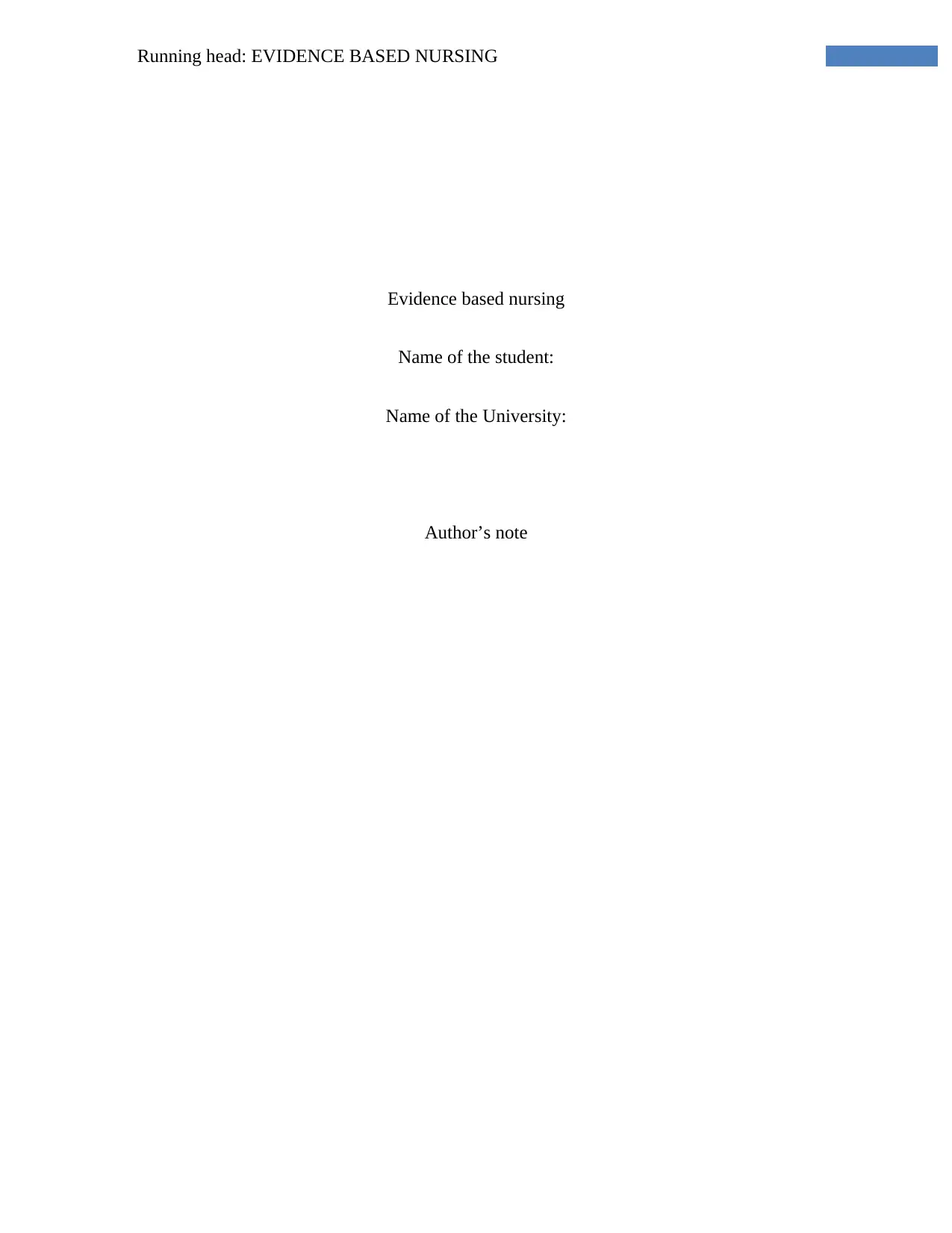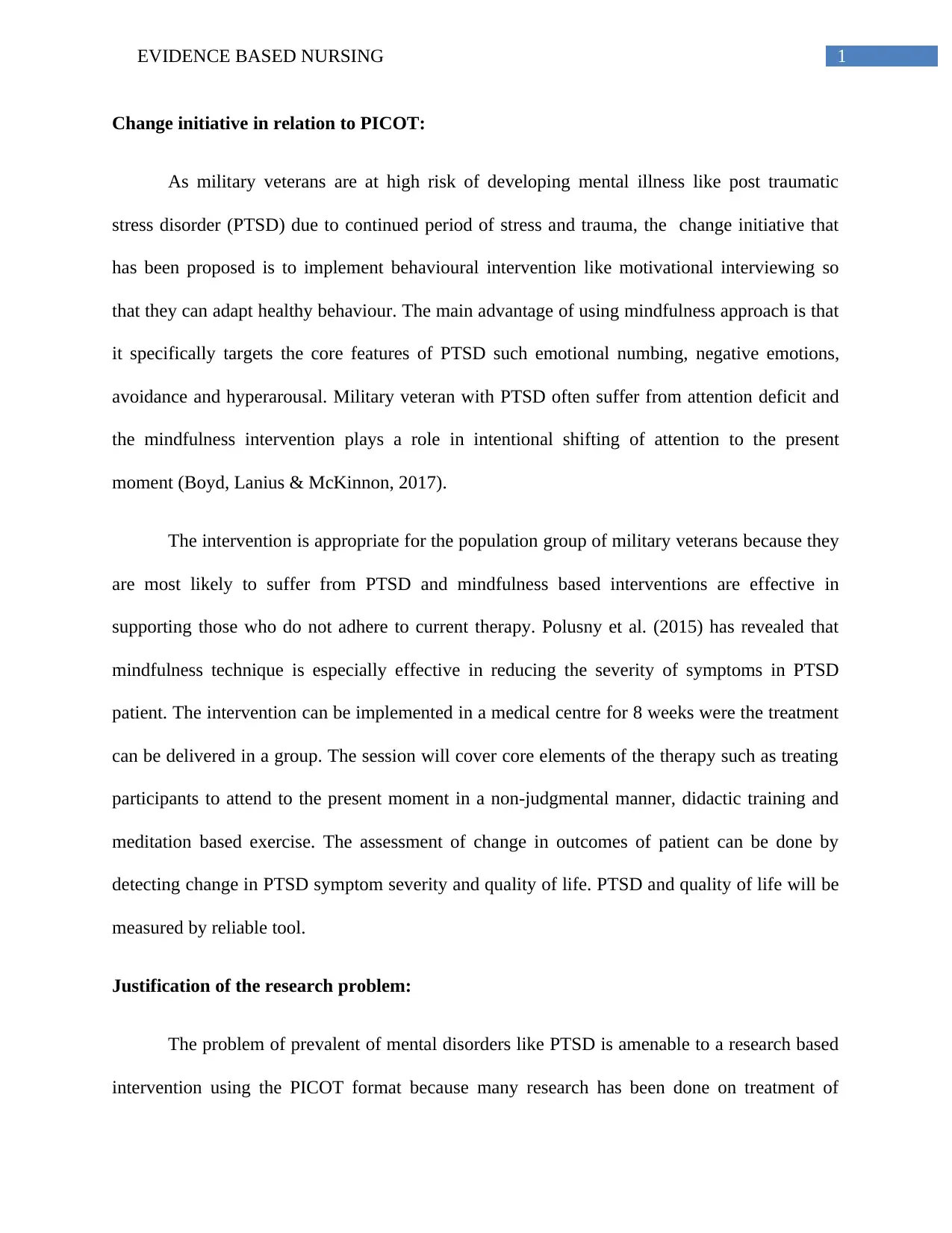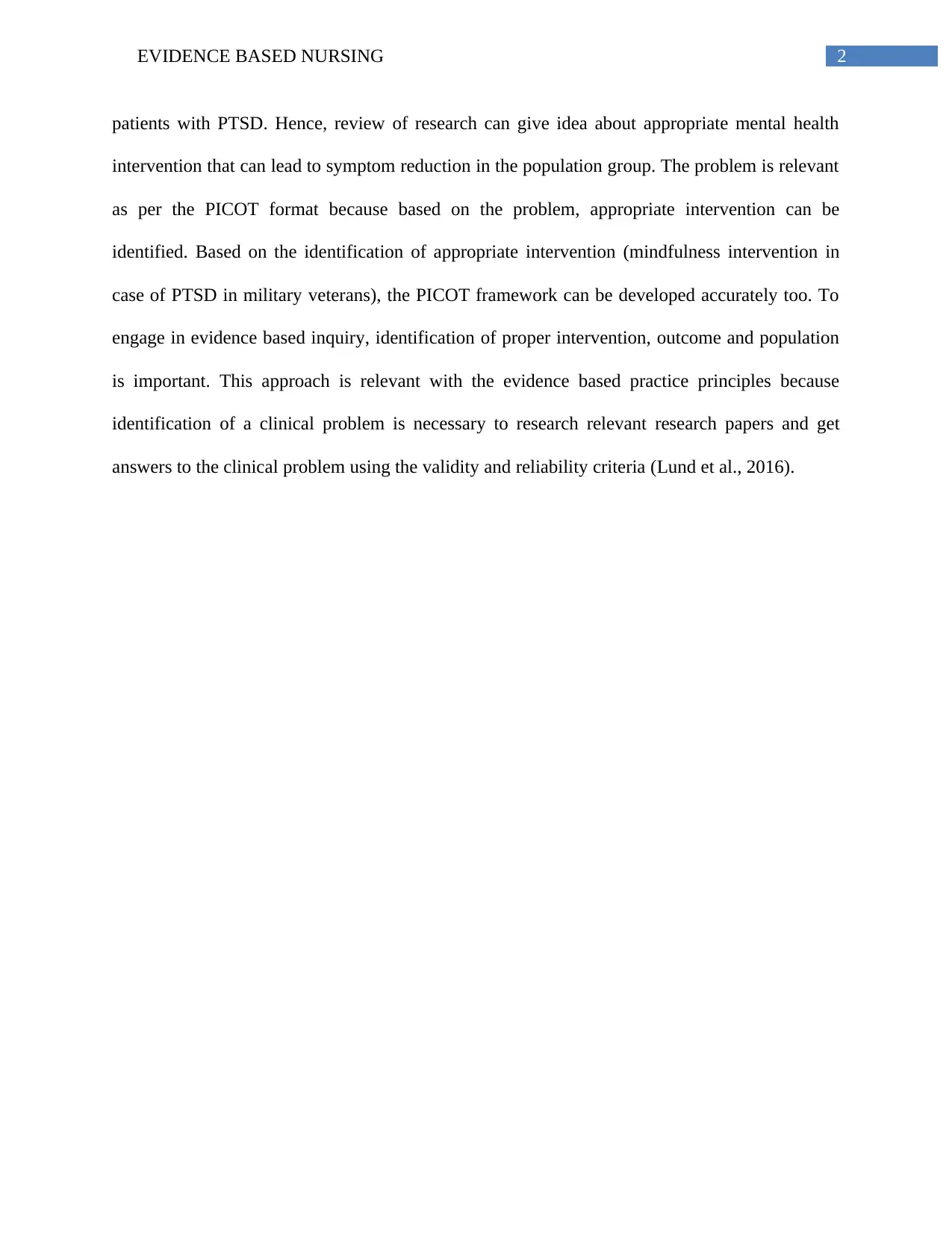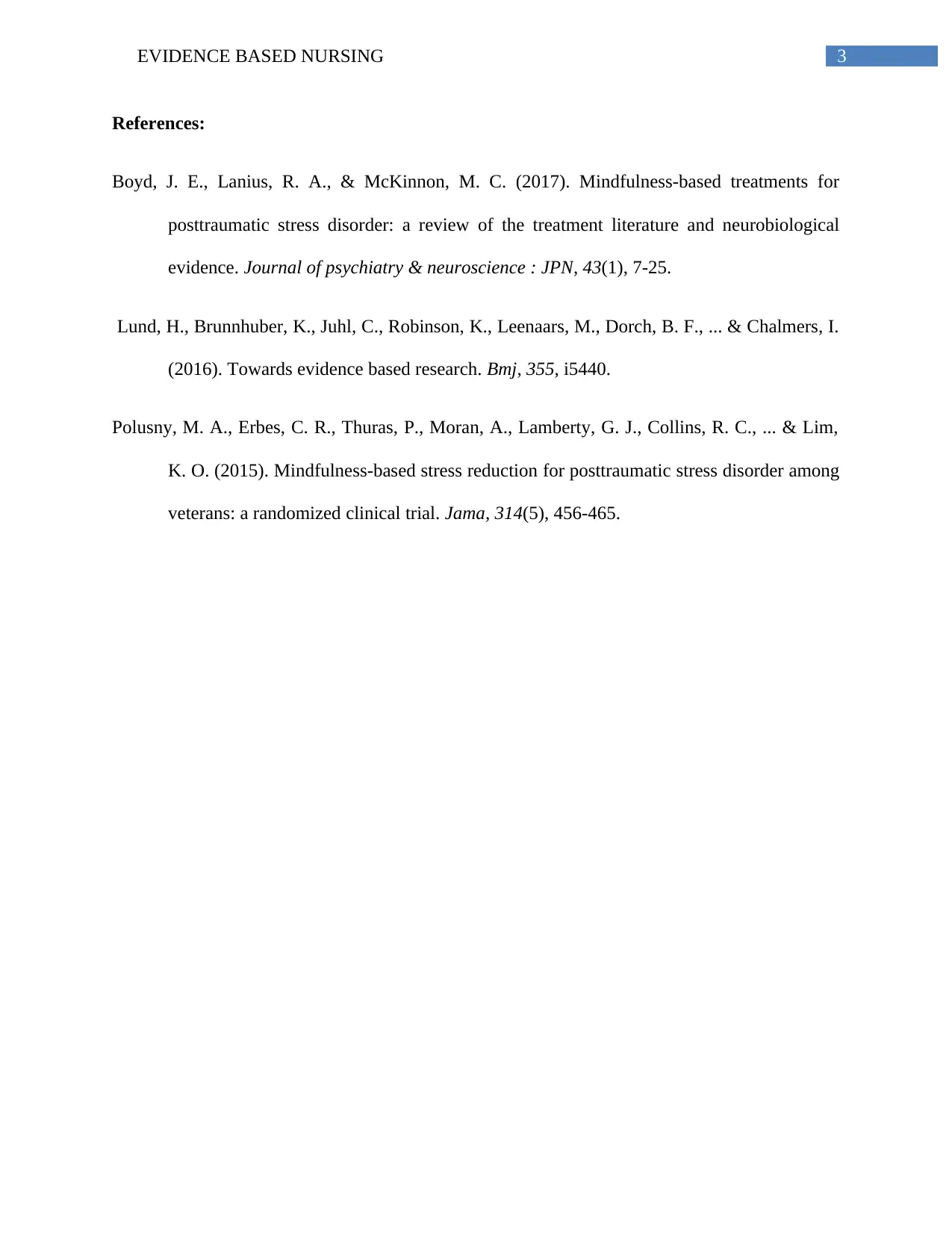Evidence-Based Nursing: Improving PTSD Care for Military Veterans
VerifiedAdded on 2023/04/25
|4
|642
|292
Report
AI Summary
This report addresses the critical issue of post-traumatic stress disorder (PTSD) among military veterans and proposes a change initiative involving the implementation of behavioral interventions, such as motivational interviewing and mindfulness techniques, to promote healthy coping mechanisms. The rationale behind this approach is that mindfulness directly targets core PTSD symptoms, including emotional numbing, negative emotions, avoidance, and hyperarousal. Mindfulness-based interventions have demonstrated effectiveness in supporting veterans who may not adhere to traditional therapies. The proposed intervention involves an 8-week program within a medical center, delivered in a group setting, incorporating core elements of mindfulness therapy, didactic training, and meditation-based exercises. The effectiveness of the intervention will be assessed by monitoring changes in PTSD symptom severity and overall quality of life, utilizing reliable measurement tools. The research problem is justified by the existing body of research on PTSD treatment, allowing for a thorough review and identification of appropriate interventions. This approach aligns with evidence-based practice principles by addressing a clinical problem and utilizing research to find valid and reliable solutions.
1 out of 4











![[object Object]](/_next/static/media/star-bottom.7253800d.svg)